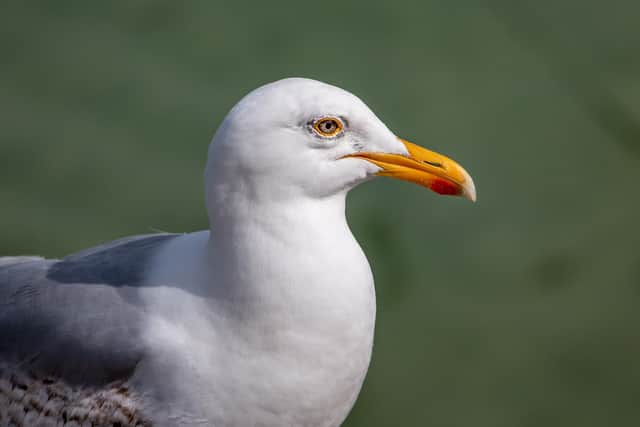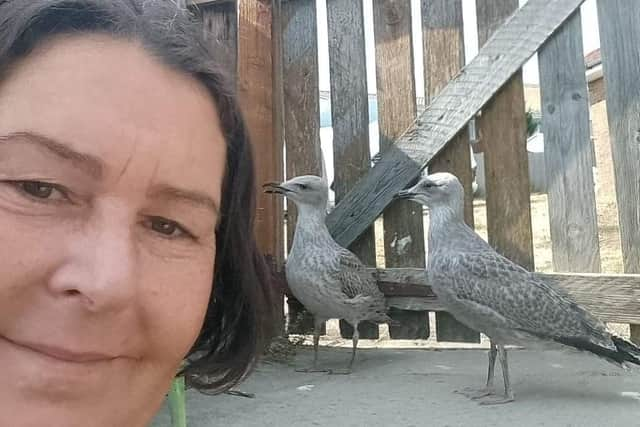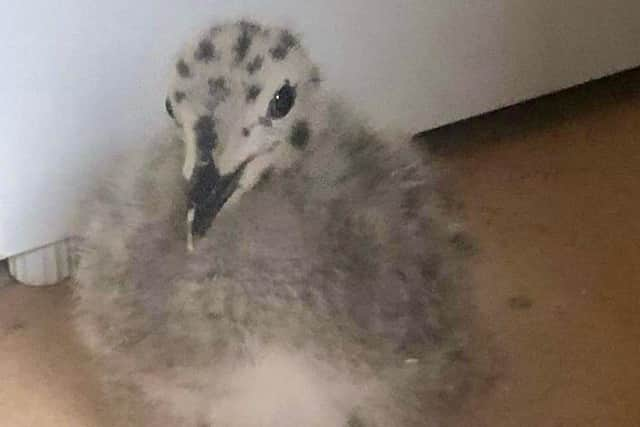Gull and bird voluntary group in need of help due to rescue centre closures
This article contains affiliate links. We may earn a small commission on items purchased through this article, but that does not affect our editorial judgement.
and live on Freeview channel 276
The South Coast & Sussex Bird/Gull Volunteer Network is struggling following the closure of most wildlife rescue and rehabilitation centres.
In July RSPCA England and Wales announced its rescue centres will no longer take in sea birds due to the risk of spreading the disease, but officers will continue to attend reports of sick and injured birds.
Advertisement
Hide AdAdvertisement
Hide AdThe outbreak of avian flu that swept through East and West Sussex earlier in May left hundreds of adult birds dead or dying, with their healthy offspring left abandoned and starving.


DEFRA states on its website: ‘During the current outbreak, over 1,400 wild birds have tested positive for bird flu across 347 different locations in 61 species.’
Justin King, manager of the voluntary group, said: “Our situation is now totally unmanageable. We are all physically and emotionally exhausted from trying to cope with the sheer volume of rescues. Most wildlife sites are closed, and volunteers have been left to do the rescue work.”
The voluntary groups are working to save baby gulls and orphaned fledglings.
Advertisement
Hide AdAdvertisement
Hide AdJuly marks the start of gull fledgling season with many young and inexperienced gulls are falling from the nests, high up on urban roofs, as they try to fly, leaving them injured or trapped, unable to get back to its parents.


Justin and his small team, known as The Chicklet Crew, are called out day and night to help with rescues and rehabilitation of injured or malnourished birds.
Whilst much of their time and work is coming to the aid of gulls, pigeons and other wild birds are also being rescued and placed with suitable carers for recovery before being released back into the wild.
The South Coast & Sussex Bird/Gull Volunteer Network was launched four years ago by Justin and now has a membership of more than 3,000 people. It is a platform supplying advice and information to anyone wanting to help abandoned or injured gulls and is an important resource for tips to those caring for birds.
Advertisement
Hide AdAdvertisement
Hide AdMany of the birds that Justin and his team help is the Herring Gull, which is a familiar sight to anyone who has been by the coast.


Justin explains that the Herring Gull is in ‘deep trouble’, and is a protect bird under the Countryside & Wildlife Act 1981 on the Red List of Endangered Species.
Justin said: “Our team is small as some have stepped back because of their own health issues, while others have moved which has made the job even harder for those of us who are still going.
“This is now a 24-hour job and whilst we are all passionate about saving these birds, we need more help.
Advertisement
Hide AdAdvertisement
Hide Ad“We are now quarantining baby birds ourselves and sending them to volunteers’ homes and gardens whilst they mature through to the end of August.
“The situation is beyond crazy. We now have young gulls recovering in volunteers’ bathrooms, sitting rooms, garden sheds, and garages. As you can imagine, this is not ideal but at least it is ensuring the safety and well-being of these special birds.
“What’s worse, the level of violence and open hostility towards these protected birds has increased 100-fold. DEFRA’s message to the public at the beginning of the outbreak has not helped either, stirring up fear and panic in the public. By telling people to avoid any birds that appear out of sorts and not to touch them, means that the public are too scared to try to help any of them, some of which may simply be starving or dehydrated rather than ill.
“There is no reason why any birds cannot be brought to us for assessment, providing the person wears a mask and gloves before they handle the bird and place them in a box, all of which can be disposed of afterwards.
Advertisement
Hide AdAdvertisement
Hide Ad“We know avian flu is highly contagious, but with some common sense and good precautions, all birds can then be checked. Those who are sick we take to a vet for euthanasia, rather than leaving them to die a slow, horrible death.
“We desperately need more help – drivers, adopters of birds, volunteers. Once again, we are having to rely on donations from the public for food, essential rescue supplies, petrol, soap powder, crates, and puppy pens for the birds. The water and electricity costs are huge from all the washing we must do too.
“Our last hope is that people will read this and reach out to us. Even help in a small way would be fantastic, give us some respite, and a chance for more birds to recover and return to the wild.”
The UK Health Security Agency ( UKHSA ) has said that avian influenza is primarily a disease of birds and the risk to the general public's health is very low.
Advertisement
Hide AdAdvertisement
Hide AdA Defra group spokesperson said: "We recognise the significant threat posed by highly pathogenic avian influenza (HPAI) to the UK’s precious wild bird populations, but there are unfortunately limited effective actions that can be taken to protect them, as opposed to captive bird flocks.
“Our current policy is in line with international standards of best practice for disease control. The Animal and Plant Health Agency operates a robust, year-round programme of dead wild bird surveillance and clear public guidance has been issued not to handle their carcasses.
"Our new research consortium also funds research into how bird flu viruses are emerging in wild populations and helps us understand the risk posed to both domestic and wild birds.”
The Food Standards Agency has said that on the basis of the current scientific evidence, avian influenza poses a very low food safety risk for UK consumers. Properly cooked poultry and poultry products, including eggs, are safe to eat.
For more information email Justin at: [email protected] or visit their Facebook page: South Coast & Sussex Bird/Gull Volunteer Network
Donations can be made to: https://gofund.me/de779a29